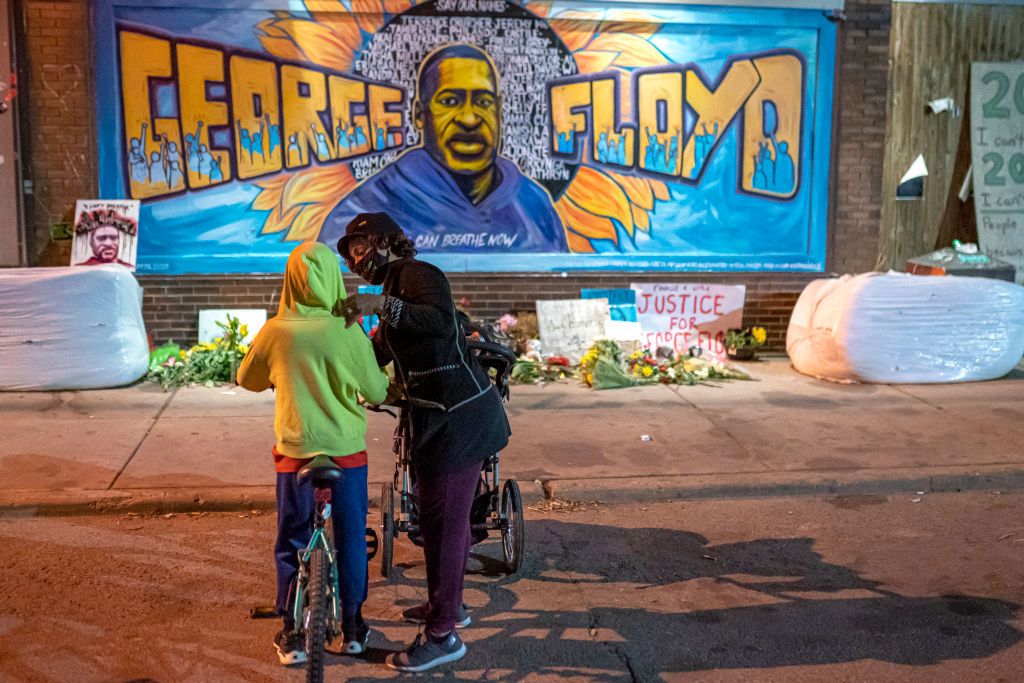
Source: Nathan Howard / Getty
This relentless onslaught of racialized terror and violence is something too many Black youth know personally or through generational understanding. Many of them come from and live in communities created and targeted by violent white supremacy. For those of us in mentorship roles, our work in this moment requires showing up in more radical ways, ways that make sense for them. What marginalized and minoritized youth contend with daily must be addressed through critical mentoring, which stresses the importance of acknowledging the purposeful attack on Black progress and advancements made toward our liberation.
With this in mind, these are four things mentors can do to support Black youth in the wake of the Chauvin trial and Ma’Kiah Bryant’s killing:
- Start with a simple thank you.
Be clear: it is largely because of the outcry, courage, and organizing of Black youth that we have made strides. Nowhere is this more apparent than with 17-year-old Darnella Frazier, who had the gumption to film George Floyd’s murder so that we could all bear witness. Pushing past shock, fear and trauma, Darnella took that courageous step to deliver both video proof and palpable testimony. Her peers organized a mean street game to ensure that protests all over the country let the world know that they would not tolerate the brutal murders of Black people. Young people showed up and showed out and they did it safely in the midst of a raging pandemic. Their ability to both radically imagine and act is what saved us. For this, and so much more, we owe them a debt of gratitude.
- Do your own work before engaging with young people.
Black youth are already dealing with significant trauma. The last thing they need is for adults who have not confronted their own privilege and biases to engage them in ways that create further harm. It is important to recognize and understand that we may not always be the best ones to help. Mentoring programs have a responsibility to ensure that the folks working with our young people have the tools and language to be effective. If you are not willing to do the work before interacting with marginalized youth, it’s best to not engage at all.
- Create or provide safe spaces for young people to process
As mentors, we owe young people support and guidance. Sometimes this looks like establishing safe spaces for them to process current events. Effective mentoring acknowledges the issues they’re facing and establishes safe and nurturing spaces for youth to work through things with the support of peers and adult mentors. Most importantly, these spaces must be reimagined: let youth lead the way and organize them in ways that best suit and serve their needs.
- Understand your place and privilege and behave accordingly
However “woke” you may think or feel you are, still interrogate whether there are internal biases and ideas you may hold that can be just as damaging. Be aware, be sensitive and know when it is time to speak or act and when it is time to let young folks lead. Do not ask young people to explain to or educate you. Accept that they might not be ready to dialogue with you and be okay with that.
As demonstrated by groups like BYP 100 and Dream Defenders, as well as young people engaged with YMAN, Black youth have always been instrumental in our civil rights movements and will continue to be. Let’s be what they need to soar and equip ourselves with the knowledge, empathy and affirmation that empowers them to keep making “good trouble.”
Dr. Torie Weiston-Serdan is the Chief Visionary Officer of the Youth Mentoring Action Network (YMAN) and author of “Critical Mentoring: A Practical Guide.” Twitter: @tweiston
SEE ALSO:
Derek Chauvin Verdict: Former Cop In Segregated Housing For ‘Safety,’ 3 Other Officers To Face Trial
Ma’Khia Bryant: 16-Year-Old Girl Called Ohio Police For Help, Officer Killed Her Instead
[ione_media_gallery id=”4142522″ overlay=”true”]
